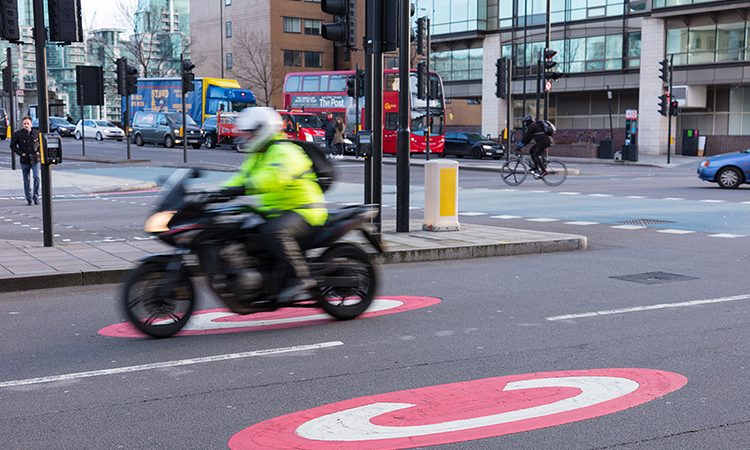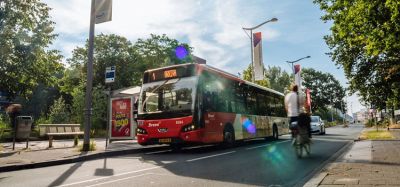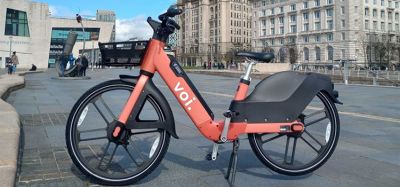London’s Congestion Charge celebrates 20 years of success
- Like
- Digg
- Del
- Tumblr
- VKontakte
- Buffer
- Love This
- Odnoklassniki
- Meneame
- Blogger
- Amazon
- Yahoo Mail
- Gmail
- AOL
- Newsvine
- HackerNews
- Evernote
- MySpace
- Mail.ru
- Viadeo
- Line
- Comments
- Yummly
- SMS
- Viber
- Telegram
- Subscribe
- Skype
- Facebook Messenger
- Kakao
- LiveJournal
- Yammer
- Edgar
- Fintel
- Mix
- Instapaper
- Copy Link
Posted: 17 February 2023 | Intelligent Transport | No comments yet
Since launching in 2003, the Congestion Charge has significantly reduced traffic congestion and harmful emissions in London, paving the way for sustainable transportation and a greener, healthier future.


Credit: Transport for London
On 17 February, Transport for London (TfL) has announced that it is marking 20 years of the Congestion Charge enabling economic and sustainable growth in the capital. When the scheme had been first introduced, it reduced traffic driving into the zone, lessened economically damaging congestion and helped more people travel sustainably.
On introduction, the Congestion Charge has:
- Limited traffic entering the zone by 18% during weekday charging hours
- Reduced congestion by 30%
- Boosted bus travel in central London by 33%
- Enabled 10% of journeys to switch to walking, cycling and public transport.
In addition to these immediate impacts, the Congestion Charge has helped reduce the trend of worsening congestion that other cities have seen. Analysis shows that there would have been three million additional journeys by car across London in 2019 without the changes that TfL had introduced to encourage more sustainable travel patterns over the last couple of decades, of which the Congestion Charge was a critical first step. This has helped ensure London’s growth has been sustainable as high levels of traffic make deliveries less reliable, delay bus journeys, worsen air pollution and make it less safe for people walking and cycling.
Seb Dance, Deputy Mayor for Transport, said: “The introduction of the Congestion Charge in 2003 – the first of its kind – sparked something of a quiet revolution in transforming the ways that Londoners get around the capital. The steep and immediate impact the charge had on both congestion and the environment paved the way for further transport innovation in London. 20 years later and London is still proving itself to be the trailblazer.”
ULEZ expansion in London dramatically reduces air pollution, says new report
Christina Calderato, TfL’s Director of Strategy and Policy, said: “The Congestion Charge was world leading when it was introduced 20 years ago and it has been essential in changing the way people travel in the capital. It has resulted in a significant shift away from people using private cars to more environmentally friendly forms of transport.”
James Cleeton, Sustrans London Director, said: “The Congestion Charge was a ground-breaking scheme when it was introduced 20 years ago. It delivered dramatic reductions in traffic levels and congestion overnight, and showed that we don’t just need to accept congestion, pollution and roads dominated by traffic as the inevitable consequence of modern life. What was key to the success of the Congestion Charge was the provision of high quality, viable alternatives to driving to work in central London that accompanied the introduction of the scheme – more buses and better tubes, and more recently quality cycle routes and wider pavements.”
Money raised from the Congestion Charge has been utilised to help Londoners get from A to B by more environmentally friendly ways, with increases in buses and re-allocation of road space helping to make London a more liveable and efficient city. This has delivered better facilities for people walking and cycling, like protected cycle lanes.
When TfL consulted on expanding the ULEZ London-wide it also asked people for their views to help shape the future of road user charging in the capital to tackle the triple challenges of the climate emergency, toxic air pollution and traffic congestion. TfL is now at an early stage in its thinking on how it could replace existing road user charging, such as Congestion Charge and ULEZ, with a simple and fair scheme for customers. The technology to implement such a scheme in a complex city like London is still many years away and will be factored into TfL’s long-term planning.
If you liked this, you may also be interested in:
▶ TFI public transport network achieves high customer satisfaction in 2022
▶ U.S. government takes next steps to roll-out national network of EV chargers
Related topics
Active travel, Air Quality, Public Transport, Sustainable Urban Transport, Transport Governance & Policy
Related modes
Bikes & Scooters, Bus & Coach
Related cities
London
Related countries
United Kingdom
Related organisations
Sustrans, Transport for London (TfL)
Related people
Christina Calderato, Seb Dance








